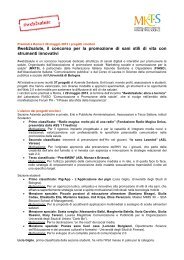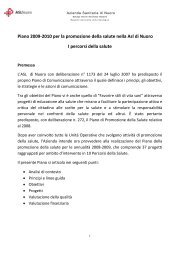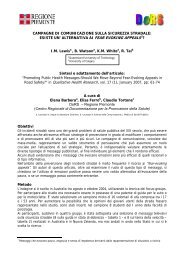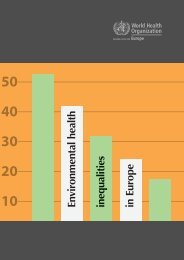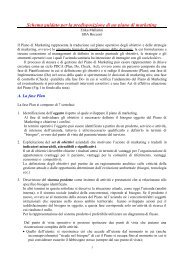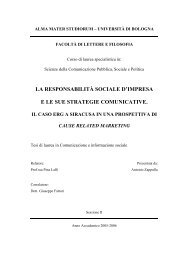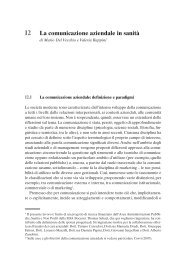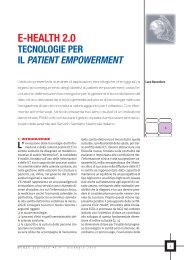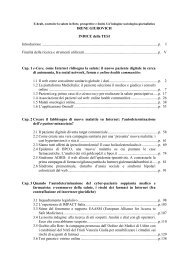Better schools through health: learning from practice
Better schools through health: learning from practice
Better schools through health: learning from practice
Create successful ePaper yourself
Turn your PDF publications into a flip-book with our unique Google optimized e-Paper software.
Chapter 1: Whole school approach1. THE PEMBROKESHIRE HEALTHY PRE SCHOOL SCHEMELynne Perry, Mary MacdonaldNational Public Health Service for Wales, United KingdomBackgroundA Healthy Pre-School Scheme has been developed to compliment the Healthy SchoolScheme in one area of Wales. One of the aims of the new Scheme is to develop aconsistent approach to <strong>health</strong> and well-being <strong>from</strong> early years and <strong>through</strong>out theschool setting.The Healthy School Scheme was set up in the county of Pembrokeshire in 1999 as part ofthe Welsh Network of Healthy School Schemes (WNHSS). All <strong>schools</strong> in Pembrokeshireare part of this well established programme.A 3 year Welsh Assembly Government funded oral <strong>health</strong> and nutrition programme wasdeveloped and established in the pre-school sector <strong>from</strong> 2004 to 2007, this programmereceived independent positive evaluation with a recommendation that the work shouldcontinue. On completion local partners agreed to extend this programme to nurseriesand day care centres encompassing all areas of <strong>health</strong> and establishing a whole settingsapproach utilising the Pembrokeshire Healthy School Scheme model.What happened?A steering group was set up; the membership included early year’s educationalistsand <strong>health</strong> professionals, nursery managers, <strong>health</strong>y <strong>schools</strong> officer, <strong>health</strong> promotionofficer, area pre-school supervisor and information officer. It was agreed to develop thepre-school scheme in the same format as the school scheme and to include all the aimsand <strong>health</strong> areas with minor adjustments to take account of education requirementsand the <strong>health</strong> needs of this age group. The new scheme was piloted in two day carecentres.In the first phase both day care centres addressed the areas of exercise and nutritionincorporating a whole settings approach to involve parents, outside agencies, developnew menus for snack and meal provision, to comply with the varying nutrientrequirements of this age group, in addition to developing food and fitness policies.The two pilot nurseries were assessed at the end of year one and achieved accreditation<strong>from</strong> the Welsh Assembly Government for the first phase of the WNHSS. They were highlypraised for their work by the Welsh Inspectorate for educational standards (ESTYN),who awarded a nursery grade 1 for ‘The extent to which the setting contributes to thechildren’s well-being’. As a result of the positive outcome of the pilot a funding bid wassuccessful and the new scheme was extended to 20 pre-school settings in 2008 withfunding to continue for 3 years in the first instance.What went well?What went well was how nursery and day care staff embraced the scheme and theenthusiasm of all partners. The scheme was easily adapted <strong>from</strong> the school scheme20





